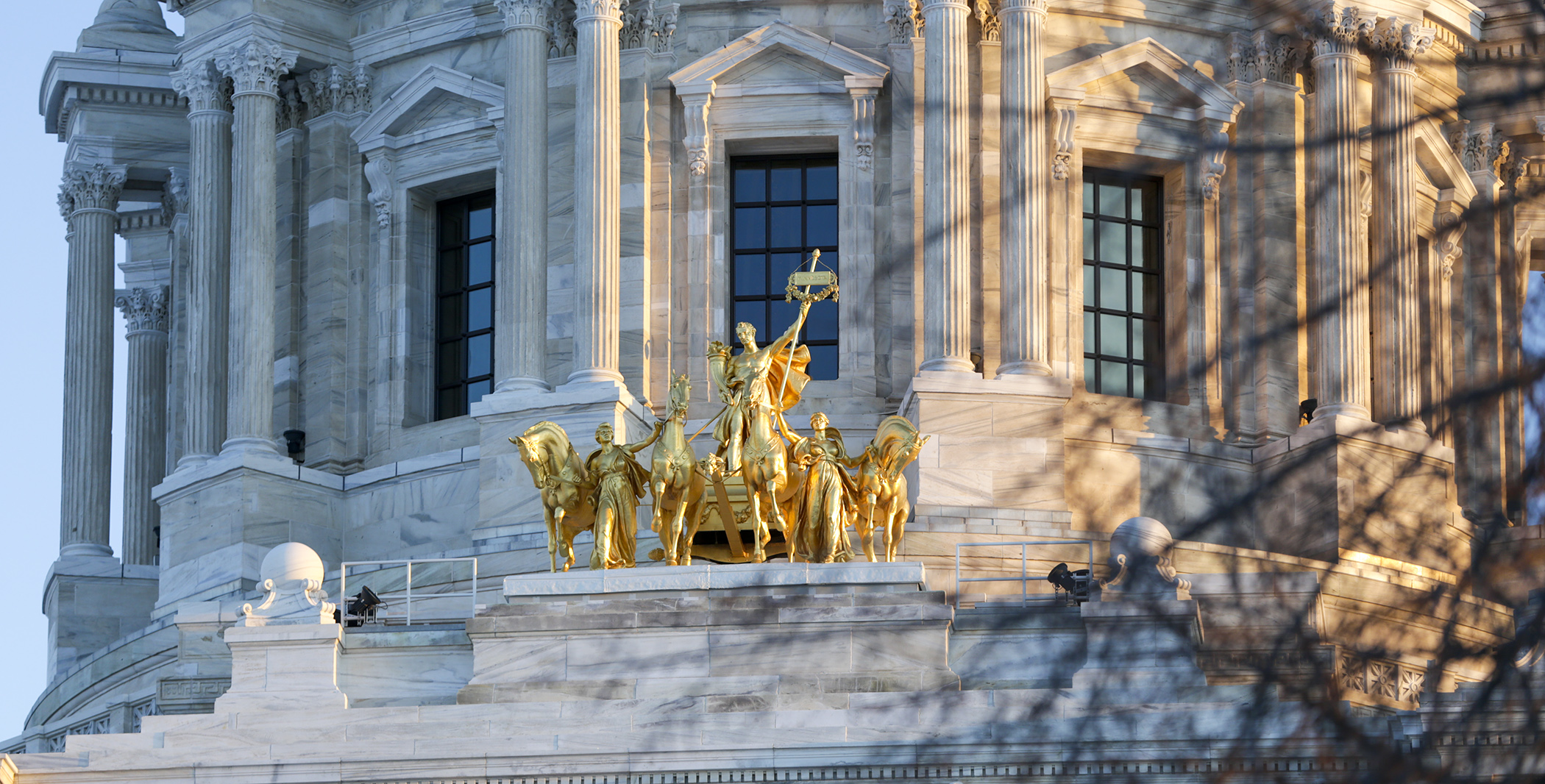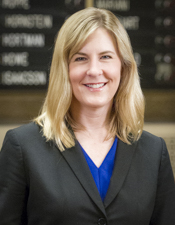House, Senate to convene Friday for special session

Gov. Tim Walz has issued a proclamation calling the Legislature into a special session at noon Friday, and he will extend the COVID-19 peacetime emergency by 30 days to help the state continue to respond to the pandemic.
In a letter to legislative leaders Wednesday explaining his decision, Walz cited the need for police accountability and reform in the wake of the George Floyd killing, along with the pandemic and economic concerns.
“Both the COVID-19 pandemic and recent civil unrest have caused economic damage to local communities, leaving Minnesota in need of a stronger and more equitable economy,” Walz wrote. “The Constitution allows me to call a special session of the Legislature on extraordinary occasions such as these, and I intend to do so.”
It will be the Legislature’s ninth special session since 2010, and it may not be over quickly.
At a news conference, the governor urged lawmakers to spend their time proving to the state’s citizens their voices have been heard.
“Let’s show them that democracy works,” Walz said. “Let’s show them that in this moment that what those people did, by going to the streets, makes a difference.”
[MORE: Watch the news conference]
The governor said an undeniable commitment to change across the political spectrum has been created and the special session provides an opportunity for the Legislature to provide it.
“This is our chance and this call to a special session is not a call just from me, it’s that primal scream you heard from people on the streets demanding justice, demanding it now and demanding us to step into this moment,” Walz said.
The governor also said lawmakers should continue the special session until they finish all of their work – including a robust bonding bill and helping rebuild communities damaged by the unrest.
Although the governor has the power to call special sessions, only the Legislature can end them.
Walz said his administration will support legislation expected to be proposed by the Minnesota People of Color and Indigenous Caucus during the special session. Those proposals are scheduled to be discussed by the House Public Safety and Criminal Justice Reform Finance and Policy Division this Saturday.
House Speaker Melissa Hortman (DFL-Brooklyn Park) said the Legislature has four important areas to address during the special session: financial assistance for local governments and small businesses dealing with COVID-19; completing work from the regular session, such as passing a bonding bill; legislation on police accountability and criminal justice reform; and rebuilding communities damaged during the unrest.
“Minnesotans have gathered and raised their voices in support of justice for George Floyd, and for Philando Castile, and many others — we must work together to change our laws so that our communities are safe for all of us,” Hortman said in a statement.
In response to news of the special session, the Republican leads on education in the House – Rep. Ron Kresha (R-Little Falls) and Rep. Sondra Erickson (R-Princeton) – released a statement calling on Walz and DFL members to cooperate with them in reducing uncertainty for Minnesota schools as they prepare to reopen amidst the pandemic.
“The disruptions caused by COVID-19 have been incredibly hard on our students at all levels, and we owe it to them to focus our attention on how to make the upcoming school year a safe and effective one for them,” Kresha said. “We must face the reality that guidance from MDE cannot effectively account for all scenarios, and the guidelines issued thus far have often left more questions than solutions. It is time for us to have the hard discussions and find answers to the questions every school is asking.”
Peacetime emergency extension
The timing of Friday’s special session is brought about by the governor’s decision to again extend the peacetime emergency declaration for 30 days, granting his administration emergency powers to take certain actions — such as closing businesses — without legislative approval. Walz said the declaration also allows Minnesota access to $50 million in federal assistance each month.
But this latest extension, the fourth, now brings the Legislature into the process. The governor’s third extension ends Friday and, since the regular legislative session adjourned sine die May 17, the law requires the governor to call lawmakers back into session so they can vote on whether the peacetime emergency declaration should come to an end.
The House and Senate would both need to vote to end the governor’s emergency powers and, with the DFL majority in the House, such a result is unlikely.
In his letter, Walz said he plans to continue to extend the emergency in 30-day increments and will call the Legislature into special session each time he does so, if lawmakers are not already seated.
Related Articles
Search Session Daily
Advanced Search OptionsPriority Dailies
Ways and Means Committee OKs proposed $512 million supplemental budget on party-line vote
By Mike Cook Meeting more needs or fiscal irresponsibility is one way to sum up the differences among the two parties on a supplemental spending package a year after a $72 billion state budg...
Meeting more needs or fiscal irresponsibility is one way to sum up the differences among the two parties on a supplemental spending package a year after a $72 billion state budg...
Minnesota’s projected budget surplus balloons to $3.7 billion, but fiscal pressure still looms
By Rob Hubbard Just as Minnesota has experienced a warmer winter than usual, so has the state’s budget outlook warmed over the past few months.
On Thursday, Minnesota Management and Budget...
Just as Minnesota has experienced a warmer winter than usual, so has the state’s budget outlook warmed over the past few months.
On Thursday, Minnesota Management and Budget...
